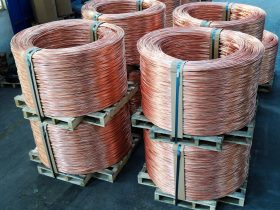By Peter Landers
OSAKA, Japan–U.S. Trade Representative Katherine Tai said the Group of Seven industrialized nations would work more closely together to tackle what she described as unfair aspects of China’s economic system including industrial subsidies.
Tai spoke in an interview with The Wall Street Journal after the G-7 trade ministers met in Osaka.
In a joint statement Sunday, the ministers called for creating a dedicated space at the World Trade Organization to talk about trade and state intervention in industry.
The ministers expressed concern about “nonmarket policies and practices” that “are an integral part of comprehensive strategies to pursue global market dominance.”
The statement didn’t name any country, but Tai said the ministers were talking about China.
“Clearly we’re primarily preoccupied with China and its economic system, ” she said. “We each have our way of talking about China. For some, we name the practices, we don’t name the country.”
Tai said the G-7 nations and like-minded countries needed to address the issue on their own in addition to any possible discussions at the WTO, where China is a member and decisions are made by consensus.
The opaque nature of China’s support for its own industries makes it hard to take action at the WTO, she said. “If you can see the subsidies, then you can do your analysis and decide whether or not you want to challenge them,” she said. “But if you’re not transparent, it becomes a real ghost in the machine.”
The U.S. has sought to bring together nations that share concerns about overreliance on China in the Indo-Pacific Economic Framework, which was inaugurated by President Biden and other leaders in Japan last year. U.S. allies such as Japan and South Korea as well as many Southeast Asian nations are members.
Tai said she expected to be able to announce an agreement on the framework’s trade pillar at the Asia-Pacific Economic Cooperation meeting in San Francisco in mid-November, although “we’re not quite there yet.” In those discussions, the IPEF nations seek to reduce red tape in customs procedures and promote transparency in government rule-making.
China has said that IPEF and other U.S. initiatives are ways of weaponizing economic issues to coerce regional countries into taking sides.
IPEF “is a political instrument of the U.S. in propping up its hegemony,” Beijing said last year.
Write to Peter Landers at [email protected]
Read the full article here











Leave a Reply